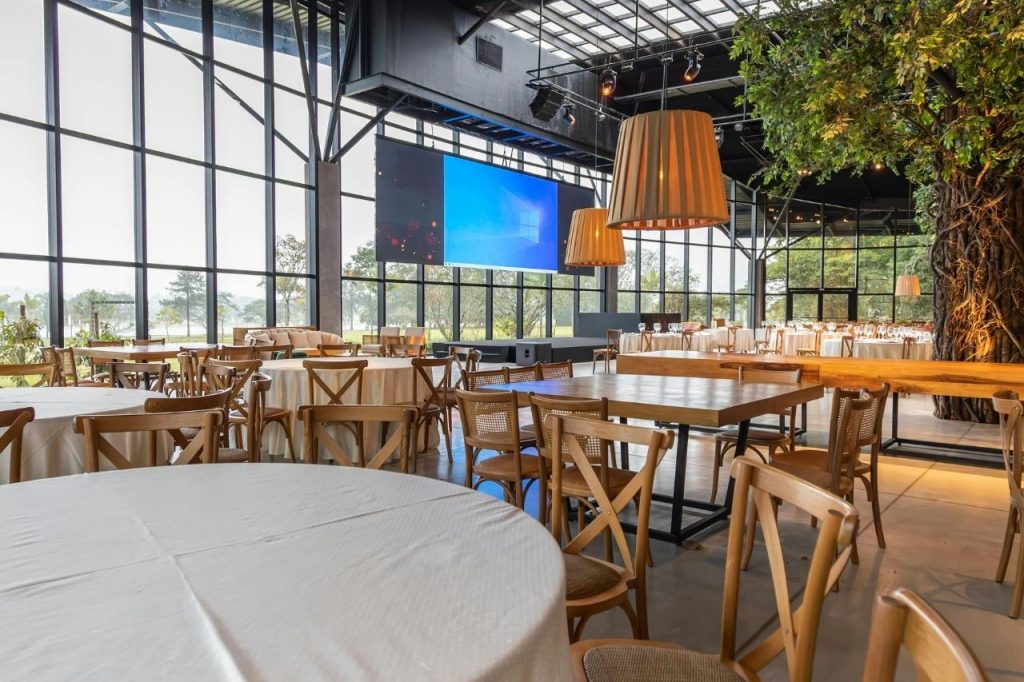Blog
How to Organize a Memorable and Impactful Corporate Event in Malaysia
How to Organize a Memorable and Impactful Corporate Event in Malaysia
Corporate events are powerful tools for strengthening brand reputation, nurturing client relationships, rewarding employees, and launching new products. In Malaysia’s dynamic business environment—marked by cultural diversity, innovation, and rapid economic growth—well-executed corporate events can make a lasting impact on stakeholders.
Whether it’s an annual dinner, seminar, product launch, client appreciation night, or a business summit, organizing a corporate event that stands out requires careful planning, strategic thinking, and attention to detail.
This guide walks you through everything you need to know to organize a successful corporate event in Malaysia.
1. Define Clear Objectives
Before diving into the logistics, take the time to define your event’s purpose. A clear objective not only guides decision-making but also helps measure the event’s success afterward.
Common corporate event goals include:
- Strengthening team morale
- Building client relationships
- Launching a new service/product
- Sharing business milestones
- Positioning your brand as an industry leader
Pro tip: Use the SMART framework (Specific, Measurable, Achievable, Relevant, Time-bound) to structure your event goals.
2. Know Your Audience
Understanding who your attendees are is crucial. Whether you’re inviting internal staff, external clients, media, or industry professionals, your program, messaging, and activities should align with their interests and expectations.
Consider these audience factors:
- Language preferences (Malay, English, Mandarin, Tamil)
- Professional level (executives, managers, employees)
- Industry familiarity
- Dress code expectations
- Dietary needs (such as halal and vegetarian)
Tip: Send out pre-event surveys or consult department heads to learn what your audience values most.
3. Set a Realistic Budget
A well-planned budget prevents overspending and helps allocate resources where they matter most. Start with a rough estimate based on your event type and scale.
Key budget items:
- Venue rental
- Food & beverages
- AV and staging
- Event branding and décor
- Gifts and tokens
- Entertainment or speakers
- Transportation & parking
- Contingency buffer (10–15%)
Use spreadsheets or budget software to track quotations and actual spend. Request at least three quotations for major items for comparison.

4. Choose the Right Venue
Malaysia offers a wide range of venues for corporate events, from luxury hotels and convention halls to rooftop spaces and heritage buildings.
Venue selection checklist:
- Capacity and layout flexibility
- Accessibility via public transport
- Parking facilities or valet services
- In-house catering (halal-certified options)
- Tech readiness (AV systems, WiFi, lighting)
- Ambience that suits your brand image
Recommended venues:
- Kuala Lumpur: KLCC Convention Centre, The St. Regis KL, Connexion@Nexus
- Penang: Setia SPICE Convention Centre, G Hotel
- Johor Bahru: Thistle Johor Bahru, Persada Johor International Convention Centre
5. Create a Compelling Program Flow
A dull or disorganized event agenda will bore attendees and waste opportunities. Craft a program that balances information, engagement, and interaction.
Elements of a great program:
- Opening speech by senior management
- Guest speaker or expert panel
- Interactive segments (Q&A, polls, breakout rooms)
- Entertainment (live music, cultural acts, games)
- Networking sessions or cocktail hour
- Lucky draws or awards ceremony
Tip: Don’t overpack the schedule—leave buffer time for mingling, photos, and refreshment breaks.
6. Leverage Local Culture and Creativity
To make your corporate event more memorable, incorporate uniquely Malaysian elements—such as food, art, or entertainment—that resonate with your audience and add authenticity.
Cultural add-ons to consider:
- Batik or songket-themed décor
- Traditional performances (e.g., kompang, lion dance)
- Local delicacies at buffet (satay, nasi lemak, kuih-muih)
- Malay/Chinese/Indian welcome gestures
- Local celebrity or emcee appearance
These touches create a lasting emotional connection and show cultural appreciation.
7. Engage an Experienced Event Planner
You can increase professionalism, save time, and reduce stress by . Planners often have vendor relationships, creative insights, and experience navigating local requirements.
Look for:
- Track record in corporate event management
- Transparent pricing and project timelines
- On-site coordination services
- Creativity aligned with your brand
Some popular corporate event planners in Malaysia include SBS Events, XO Events, Above Creative, and Just Unique.
8. Incorporate Technology
Today’s corporate events are expected to be tech-friendly, seamless, and digitally integrated. Leverage event technology to enhance the guest experience and streamline operations.
Tech tools to consider:
- Online registration and e-ticketing (Peatix, Ticket2U)
- Event mobile app or microsite
- Live streaming for hybrid access (Zoom, StreamYard)
- Digital signage and branded content
- QR code check-in systems
- Post-event survey via Google Forms or Typeform
Tip: Provide free Wi-Fi and charging stations if attendees will be using mobile devices frequently.

9. Promote Strategically
A promotional strategy is essential if your event includes outside guests, partners, or the public, which is smart. Even internal-only events benefit from good pre-event buzz to increase participation.
Marketing tactics:
- Email invitations with RSVP tracking
- Teaser posts on LinkedIn and Facebook
- Reminder messages via WhatsApp or SMS
- Influencer or media partnership for PR
- Event hashtags for social media engagement
Don’t forget to provide a clear event schedule, dress code, parking info, and contact person for questions.
10. Measure Success and Follow Up
The final yet often overlooked step is evaluating your event. Utilize both qualitative and quantitative data to assess the success of your event and identify areas for improvement.
Key metrics to track:
- Number of attendees vs. RSVPs
- Audience feedback (satisfaction, highlights, suggestions)
- Social media engagement (likes, shares, mentions)
- Internal feedback from staff or speakers
- ROI in terms of brand exposure, leads, or media coverage
Follow up with attendees via thank-you emails, video highlights, or photo galleries. Use this opportunity to strengthen relationships and share post-event content.
Bonus Tip: Prepare for Contingencies
Always be ready for last-minute changes, no-shows, or technical glitches. Have backup vendors, extra staff, and printed materials on hand. Assign specific team members to troubleshoot key areas such as AV, guest registration, or speaker coordination.
Conclusion
Organizing corporate events in Malaysia is an exciting opportunity to showcase your brand, connect with stakeholders, and foster business growth. By focusing on clear goals, understanding your audience, and infusing creativity with cultural relevance, you can deliver a memorable experience that reflects your company’s professionalism and values.
Whether it’s a large-scale conference in Kuala Lumpur or a private networking dinner in Penang, the success of your corporate event lies in the details—and your ability to plan, adapt, and execute with precision.
